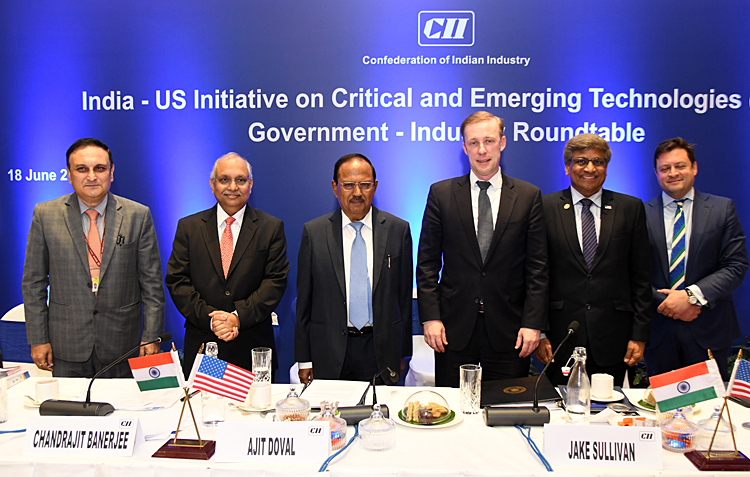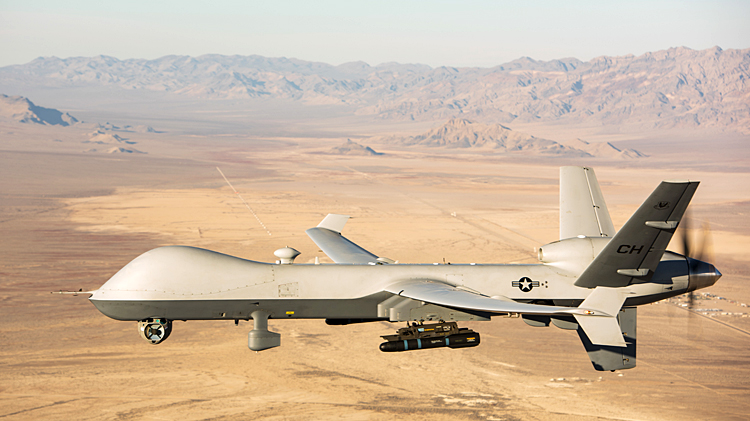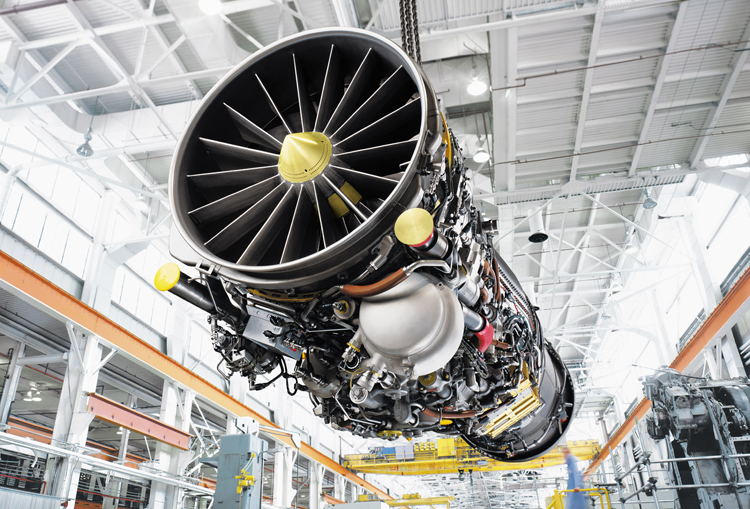INDIAN ARMED FORCES CHIEFS ON OUR RELENTLESS AND FOCUSED PUBLISHING EFFORTS

The insightful articles, inspiring narrations and analytical perspectives presented by the Editorial Team, establish an alluring connect with the reader. My compliments and best wishes to SP Guide Publications.

"Over the past 60 years, the growth of SP Guide Publications has mirrored the rising stature of Indian Navy. Its well-researched and informative magazines on Defence and Aerospace sector have served to shape an educated opinion of our military personnel, policy makers and the public alike. I wish SP's Publication team continued success, fair winds and following seas in all future endeavour!"

Since, its inception in 1964, SP Guide Publications has consistently demonstrated commitment to high-quality journalism in the aerospace and defence sectors, earning a well-deserved reputation as Asia's largest media house in this domain. I wish SP Guide Publications continued success in its pursuit of excellence.
India-US Review iCET Progress
US National Security Adviser Jake Sullivan visited India to conduct the first annual review of the Initiative on Critical and Emerging Technologies (iCET), a collaboration between the two countries in advanced technological domains
 |
The Author is Former Director General of Information Systems and A Special Forces Veteran, Indian Army |

US National Security Adviser (NSA) Jake Sullivan visited India on June 17-18, 2024, on an invitation from NSA Ajit Doval. The primary objective of Sullivan's visit was the 'first annual review' of the 'Initiative on Critical and Emerging Technologies (iCET)', which involves an inter-departmental delegation from both countries, aimed at evaluating the initiative's advancements and future directions.
The iCET aims to foster cooperation in semiconductors, artificial intelligence, quantum computing, defence innovation, space exploration, and advanced telecommunications
The iCET was launched by Prime Minister Narendra Modi and US President Joseph R. Biden during the QUAD Summit in Tokyo on May 24, 2022. The iCET is to foster collaboration in various advanced technological domains, including semiconductors, artificial intelligence (AI), quantum computing, defence innovation, space exploration, and advanced telecommunications.

Referring to the visit of Sullivan to India, the White House issued a statement saying that the United States and India, being the world's oldest and largest democracies, share a special bond of friendship and that the US NSA's visit to New Delhi aims to further strengthen the US-India partnership, contributing to a more secure and thriving Indo-Pacific region.
At the India-US iCET Roundtable, attended by industry CEOs and inter-departmental delegations, the emphasis was on the role of public-private partnerships in driving technological innovation and cooperation
Concurrently, at the VII Annual Leadership Summit hosted by the US-India Strategic Partnership Forum (USISPF) in Washington, DC, US Senator, Dan Sullivan highlighted India's "untold" narrative of innovation and strategic promise. He underscored the need to amplify India's achievements and stressed the potential for deeper collaboration between the world's oldest and largest democracies. The Annual Leadership Summit brought together a distinguished cohort of eminent individuals, from policymakers to prominent business leaders, high-ranking political figures, senior officials, and key stakeholders from both countries.

At New Delhi, the two NSA's, Ajit Doval and Jake Sullivan, addressed participants at the India-US iCET Roundtable, organised by the Confederation of Indian Industry (CII); where the attendance, aside from the inter-departmental delegations from both sides, also included CEOs from leading industries considering the critical role of public-private partnerships in driving technological innovation and cooperation between the two countries.
The problem in India-US technological cooperation, particularly in high-end technology for military applications is that America's domestic policy prohibits whole body manufacture outside the USA. Also, the US has never given New Delhi the latest technology, even giving India older technology than what it gave to Pakistan decades earlier. The MQ-9 Predator drones are coming to India but the Houthi have already shot down six MQ-9 Reaper drones. Notably, the GE-F414 engine being given to India is the "older version", the transfer is inordinately delayed and according to reports the technology of the "inner core" of the engine will not be shared with India despite the hype of 100 per cent transfer of technology (ToT).

However, the continuing Ukraine War and Chinese aggressive actions in the Indo-Pacific has alarmed the US over technological advances made by Russia and China, particularly in high-end technology, both in the military and civil fields. In addition, Washington lacks war-related mass production capacity even to cope with the war in Ukraine, what to talk of taking on China and Russia together. Change in immigration policy by President Biden is also perhaps to improve high-end technological capacity of the US. Isn't this why immigrant's children after 20 years of age can stay and work and spouses are also allowed to work if they have been in the US for 10 years?
Here the question is what high-end technology is the US prepared to share with India? The Defence Research and Development Organisation (DRDO) is unable to manufacture advanced Aero Engine Rotor Blades. Will the US give this high-end technology to India, and if so, will it be "without" extracting strategic advantage, as it is doing in the case of space cooperation? In fact, America's policy of technology-trap is not very different from China's debt-trap policy – both extracting strategic and economic benefits for themselves.
Concerns exist over the US's reluctance to share the latest high-end technology with India, exemplified by delayed and limited technology transfers, such as the older version of the GE-F414 engine
The buzz over the first annual review of the iCET was dampened with concurrent news pouring in that five US Democrat Senators had called for strong action against India for involvement in a foiled plot to assassinate Sikh extremist Gurpatwant Singh Pannun on US soil; the letter signed by Senators Jeff Merkley, Ron Wyden, Tim Kaine, Bernie Sanders and Chris Van Hollen demands accountability of the Biden Administration and a briefing on its engagement with the Indian government.
The above needs to be seen in context of the US and its protégés (Australia, Canada and the UK) harbouring and "encouraging" Sikh separatists in their countries; allowing them to attack Indians, defacing religious places and attacking/setting fire to Indian assets. Canadian Prime Minister Justin Trudeau has been particularly siding with Khalistani separatists, some of them being part of his government and for their vote-bank. The killing of separatist-terrorist Hardeep Singh Nijjar, for which Trudeau blames India, was killed by Pakistan's ISI for taking control of the narcotics trade.
The irony is that all this is being engineered by the US to keep India under pressure. The noise over CIA-pet Gurpatwant Singh Pannun is deafening, while the weasel is alive and kicking, and issuing threats to India periodically. This needs to be viewed in the backdrop of the mysterious deaths of scores of Indian nuclear scientists, as also the death of Dr Homi J. Bhabha, Chairman of India's Atomic Energy Commission, in an air crash at Mont Blanc in Canada – all evidently Western conspiracy to deter India's nuclear programme?
The visit occurred amid tensions, with US Democrat Senators calling for action against India over alleged involvement in a plot to assassinate a Sikh extremist on US soil, highlighting ongoing geopolitical frictions
The shameless part is that the inquiry into the Kanishka tragedy by Canada awarded mild punishments to the Canadians involved, while the American-origin suspect was left scot free. The Canadian Parliament recently observed one minute silence for Hardeep Singh Nijjar, to shore up political brownies for Trudeau and improve his ratings with his masters in Washington. India needs to tell the US to get off its high horse as it needs India more than India needs the US. India should also demand an international inquiry into the bombing of Air India's Kanishka.
Finally, Joe Biden, when Vice President of America, was instrumental in stopping the sale of cryogenic rocket engine to India, and the US giving Pakistan $1.5 billion grant for five successive years. Only time will show what high-end technology and in what measure the US will transfer to India. But certainly the US needs to stop twisting the knife in India's back. During this visit, Sullivan's 40-minute meeting "without aides" with Doval was most conspicuous. Whether this was to pressure India on Pannun, boycott Russia-China and demand Prime Minister Modi shuns the next SCO Heads of State Meeting in Astana, Kazakhstan on July 3-4, 2024 remains unknown.





